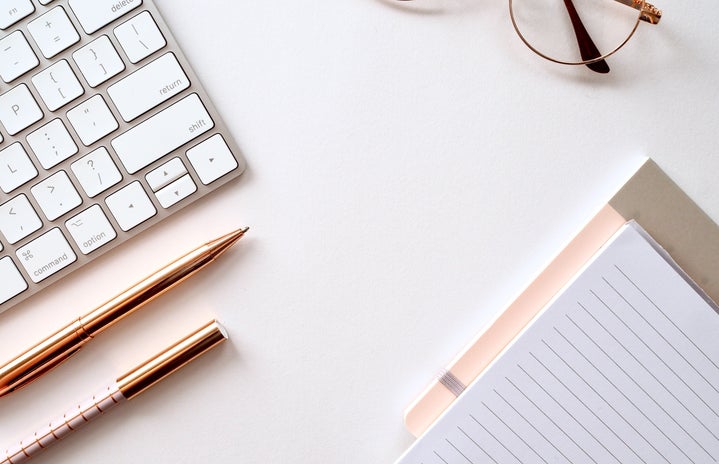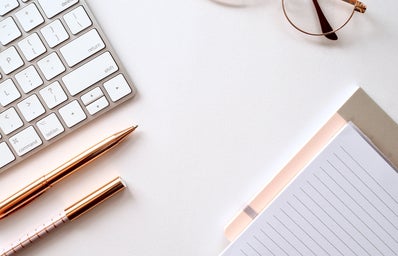- Our Environments Indirectly Affect Productivity
-
One of my favorite youtubers, Rachel Southard, often creates “study with me” videos and vlogs to document her time as a medical student. During study breaks she cleans her room, straightening the tassels on her carpet and organizing her plants. I tried taking some notes from Rachel and adopted similar habits. Now, I always make sure to reduce the objects taking up space on my desk to just my laptop, and maybe a notebook or a cup of tea before I sit down to study. This is because I’ve found that the more cluttered my space is, the more cluttered my mind and my ability to focus on the task at hand is. With fewer ‘things’ lying about on my desk, I have been able to focus on the work in front of me, keeping my periphery clear and organized. It may seem insignificant, but I’ve truly felt a difference when studying in a clear workspace as opposed to a cluttered one. I am more productive, focused, and ultimately, more calm.
- External Clutter Translates to Internal Clutter
-
I truly believe that the way we care for the spaces in which we live directly translates into how we care for our minds. Something as simple as a crooked rug, an off-centered vase, or a meaningless stack of papers can negatively impact your mental clarity. Think about it. Our living environments are physical; filled with objects imbued with a unique, indirect emotional connection to the people living in their spaces. In this sense, physical objects can represent and embody mental organization, mental clarity and peace.
- A Fresh Start
-
Over quarantine, I, like many students, went home to my childhood bedroom for almost six months. I distinctly remember walking into my room and looking around at countless useless decorations taking up space with no actual purpose, and wondered how to give my room a fresh start. I spent the first few days after I got home decluttering and throwing out everything that made the space feel crowded or small. I remember feeling at ease whenever I walked into my room after clearing it of clutter, as if I’d given the room a chance to breathe. I was more at peace and strutted straight to my desk to get some work done, without feeling the penetrating stare of stacks of books, post-it notes, or sweaters hanging precariously on my chair. Declutter your surroundings to help give yourself a bit of a kick towards a fresh start, both physically and mentally. Whether it’s at the beginning or end of a day, cleaning out your room can be a crucial step in clearing your mind.
- To Each Their Own
-
Decluttering is only one way to help maintain a clear mind. Mental clarity is not always easily achieved, and it is important to remember that different people may find different approaches that help them to keep their minds free of ‘clutter’. Physically decluttering the space around you is one way in many that can help. So find what helps you clear your mind, and stick with it!



